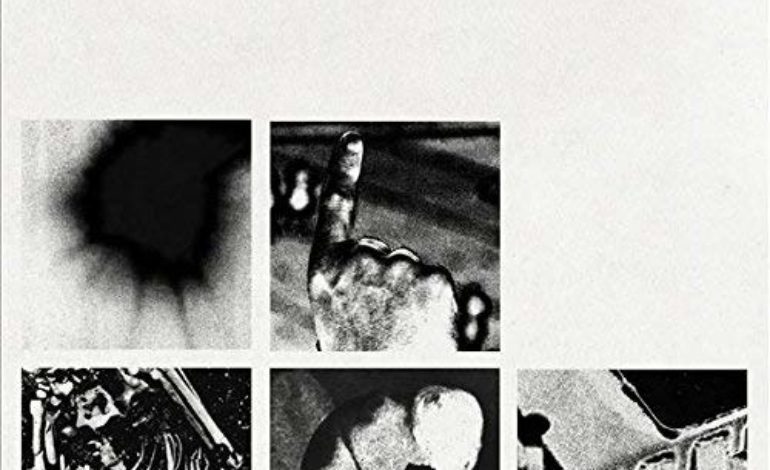

Old dog, new tricks
Some bands have a such an undeniable contribution to music that it constitutes their canonization. Often times this rare occurrence happens in the dark corners that only artists visit. A small black space teeming with raw, unpolished creativity that other musicians co-opt into their sound is likely to reach greater commercial appeal. What the world eventually sees is the second step, the music from those that sat and studied, and eventually created the building blocks of a genre. While these bands may come and go, a chosen few remain in the limelight as not only progenitors, but as masters. Nine Inch Nails is among those rare few. Their every breath captivates fans of rock, metal, noise and most importantly, industrial. Bad Witch makes it easy to see why, after all these years, they remain kings of the genre.
It would have been too easy for NIN to cash in years ago. The group, led by Trent Reznor, was and still is, seen by many to be the most important industrial rock band in all history. Their eclectic mix of noise’s grit, techno’s drive and rock’s accessibility won them acclaim, both critical and commercial, as they cut a violent swath through the ’90s with breakout records like Prettyhatemachine and The Downard Spiral. Yet, for all their success they never sat down to rest. There were missteps along the way, but even those had their successes cautiously carried forward into future albums and blossoming solo careers. Bad Witch is a natural continuation of that drive that not only improves upon the ideas that made them the driving force of an entire movement. It reclaims the soul of the influences that their successors have carried forward and utilized them in exciting and powerful ways.
Bad Witch begins with a powerful statement. Mere seconds into the grit laden force of “Shit Mirror,” it is readily apparent that NIN have lost none of their edge or aggression in the near 30 years since their first record. The track is filled with a feedback smothered guitar line and the same pummeling drums that have long been the trademark of industrial. Reznor sounds youthful and dangerous on the track, refusing to betray his age for a single moment, and adding an air of urgency and brutality to the track that many aging bands lack.
Follow up track “Ahead of Ourselves” is an absolute ripper. Reznor’s vocals are passed through a warbling filter that gives his voice an unsettling distortion that is not easily shaken. The biggest standout of the track is the menacing synth line that hums and tears across the track as the excellent drums keep the song on its feet while remaining fresh with its fair share of drum fills. While it’s unlikely that NIN was influenced by HEALTH, the song shares a lot in common with the track “MEN TODAY” from the band’s excellent 2015 record DEATH MAGIC. The chorus is violent to the point of noise rock, and the synth is punishing enough that it easily could find its way onto an early HEALTH album.
After the opening tracks the album slows a bit in intensity and pace but pushes forward in its penchant for experimentation. “Play the Goddamned Part” is a plodding tribute to the group’s noise influence by including hearty amounts of Colin Stetson-like saxophone and ear-splitting shrieks of feedback. To the uninitiated, it may have a tendency to feel a bit like an interlude but it’s actually the artistic statement of the record. NIN is at their most nuanced and ambitious in ages with the track and it’s exciting to see them branching deeper into the noise roots of industrial. If “Play the Goddamned Part” was an ode to their more experimental roots, then “God Break Down the Door” is a showcase of their electronic influences. The first portion of the track is a pounding, clubby modular synth that slowly trickles away into a saxophone before exploding back with unyielding force at two minutes in. The track continues with the amped-up techno building to a breaking point before it dashes away in a sharp line of feedback.
The record closes with a dubious level of success, “I’m Not From This World.” The song attempts to recreate the experimental majesty of “Play the Goddamned Part” but ends up stepping too close to noise, leaving the track as more of a well put together curiosity instead of an effective addition to the record. Closing track “Over and Out” is fun and groovy for potions. The lyrics are the most understandable and relatable to the current state of the world so far. Refrains of “Time is running out, I don’t know what I’m waiting for,” buoy themselves over top an unexpectedly ambient track that may last a bit too long for its own good. Yet it’s hard to take many points away from the record, as the last two tracks, while somewhat bloated and weaker than its predecessors, would be standouts on a record from most other bands.
NIN has completely outdone themselves with Bad Witch. After a string of excellent EP’s, they managed to cap off their run with their best post-2000 work to date. Bad Witch pushes boundaries with exceptional ease, taking advantage of the forward progress the genre has made in their brief absence and marrying it to the ambitious film soundtracks that Reznor has created over the years. The resulting album is bound to become yet another seminal work of industrial music from NIN that pushes both the band and their sound forward while remaining approachable and engaging.
